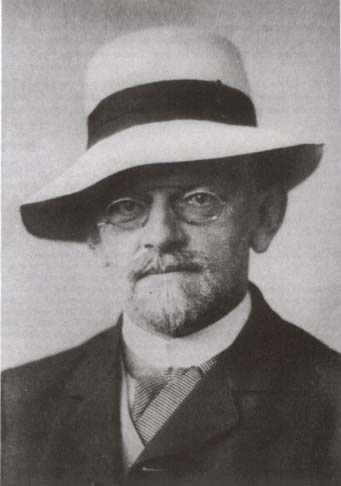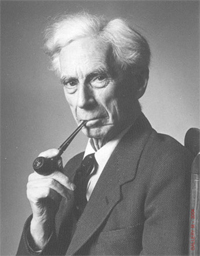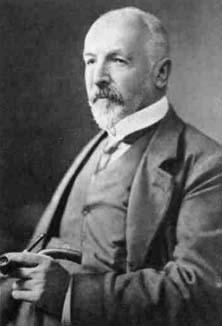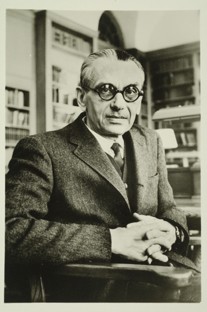- About MAA
- Membership
- MAA Publications
- Periodicals
- Blogs
- MAA Book Series
- MAA Press (an imprint of the AMS)
- MAA Notes
- MAA Reviews
- Mathematical Communication
- Information for Libraries
- Author Resources
- Advertise with MAA
- Meetings
- Competitions
- Programs
- Communities
- MAA Sections
- SIGMAA
- MAA Connect
- Students
- MAA Awards
- Awards Booklets
- Writing Awards
- Teaching Awards
- Service Awards
- Research Awards
- Lecture Awards
- Putnam Competition Individual and Team Winners
- D. E. Shaw Group AMC 8 Awards & Certificates
- Maryam Mirzakhani AMC 10 A Awards & Certificates
- Two Sigma AMC 10 B Awards & Certificates
- Jane Street AMC 12 A Awards & Certificates
- Akamai AMC 12 B Awards & Certificates
- High School Teachers
- News
You are here
Numbers, Infinity, and Reality: An Interdisciplinary Undergraduate Philosophy of Mathematics Course – Assignments and Assessment
In both versions of the course Numbers, Infinity, and Reality, grades are determined primarily by essay assignments, with a small percentage of overall grades dedicated to participation. Although mathematical problem sets are used during class sessions, they are not collected for grades but do constitute part of class participation. The honors version of the course features longer, more comparative essays, while the non-honors assignments were brief reflection-style essays. In the honors iteration of the course we also administer a cumulative final examination with the aim of assessing accurate use of terminology, broad comprehension of main debates and authors, and sufficient grasp of basic mathematical concepts pertaining to the course themes.
Reflection Essays
In addition to simple reading responses (one-page written reactions to readings), the non-honors iteration of the course focuses on five 2–3 page “reflection" essays. For these assignments we ask students to respond creatively and analytically to prompts distributed ahead of time. Some examples of prompts are given below.
- Concisely articulate what you take to be the Pythagorean and/or Platonist view of what math is and how mathematical knowledge is produced. Your characterization should leverage a close reading of one specific passage from one of the relevant texts. What do you think is the most attractive aspect of this view and why? What do you think is one challenge or objection to it, and how might proponents of the view defend themselves?
- Select one of the anti-realist metaphysical views of math we have considered and concisely state what this view involves. Then juxtapose this view with another metaphysical view of math we have also considered (whether anti-realist or not) and either argue why one view is superior to the other, or else show how there might be common ground between the two otherwise opposing views. Your discussion of each view should be informed by close reading of relevant passages from texts representing each of the views you’re discussing.
- Concisely articulate Euclid’s approach to mathematical axioms and undefined terms and then the modern approach to these concepts found in the texts of Russell and Greenberg. Discuss similarities in the two approaches and notable differences between them. Which approach do you find more natural and why? Which do you find more practical? Your discussion should cite specific axioms and terms in the relevant passages from texts representing each approach.
- Drawing upon commentary from Russell and Hilbert, discuss challenges posed to mathematicians by the concept of the infinite. What questions about infinite collections have mathematicians sought to resolve? Concisely articulate the difference between the infinite size of the collection of natural numbers and the infinite size of the collection of real numbers. Do you find this distinction to be practical or only ideological? Your discussion of practicality should be informed by close reading of the relevant texts.


Figure 6. David Hilbert (left) and Bertrand Russell (right). Convergence Portrait Gallery.
Illustrative Essays
“Illustrative” essays assigned to students in the honors version of the course are designed to showcase student understanding of the debates, theories, and texts from the course syllabus. Rather than providing a prompt for the students, we task them with identifying one of the central debates or issues that have been examined in class and composing a five-page essay in which they explicate that topic. We emphasize that students should showcase two of the relevant readings in order to inform their illustration of the topic. We are clear that students should not attempt to evaluate which theory or viewpoint is more correct or incorrect and thus should avoid defending their own perspective regarding the debates or the viewpoints.
Thesis Essay
In the final weeks of the honors course we ask students to compose an eight-page argumentative essay in which they defend their own conclusions about some particular question or debate within the interdisciplinary space between mathematics and philosophy. We warn students that they should not attempt to connect their thesis to every single reading or viewpoint; rather, we encourage them to home in on some specific aspect. Frameworks for successful essays include, but are not limited to: (1) defending one view from an objection that a rival view makes against it; (2) revealing some point of constructive similarity between two otherwise different views; or (3) showcasing a potential problem or limitation internal to a view.
Final Examination
The honors course final exam is cumulative and assesses comprehension of basic terminology, historical context, logical techniques, and the relative pros and cons of key theories within the philosophy of mathematics. The purpose of this exam is to ensure sufficient breadth of engagement with the syllabus texts, whereas the essay assignments described above aim more at encouraging depth of student engagement. In Spring 2021 our final exam consisted of twenty questions in multiple choice, matching, or true/false formats. Roughly half of the questions were focused on texts that were more strictly mathematical, while the other half addressed strictly philosophical texts. Of course, most of the questions were ultimately in the intersection between mathematical and philosophical content. Sample questions include asking students: (1) to identify items that Euclid assumed without proof, featuring options such as the claim that ellipses always intersect (incorrect) or that circles are completely determined by a radius and a center point (correct); or (2) to select from a list the proposition that best summarizes Gödel's attitude toward Cantor's Continuum Hypothesis, featuring options such as that it can neither be proven true nor proven false (correct) or that it can be proven both true and false, rendering it incoherent (incorrect).


Figure 7. Georg Cantor (left) and Kurt Gödel (right). Convergence Portrait Gallery.
Kevin DeLapp (Converse University) and Jessica Sorrells (Converse University) , "Numbers, Infinity, and Reality: An Interdisciplinary Undergraduate Philosophy of Mathematics Course – Assignments and Assessment," Convergence (June 2023)




